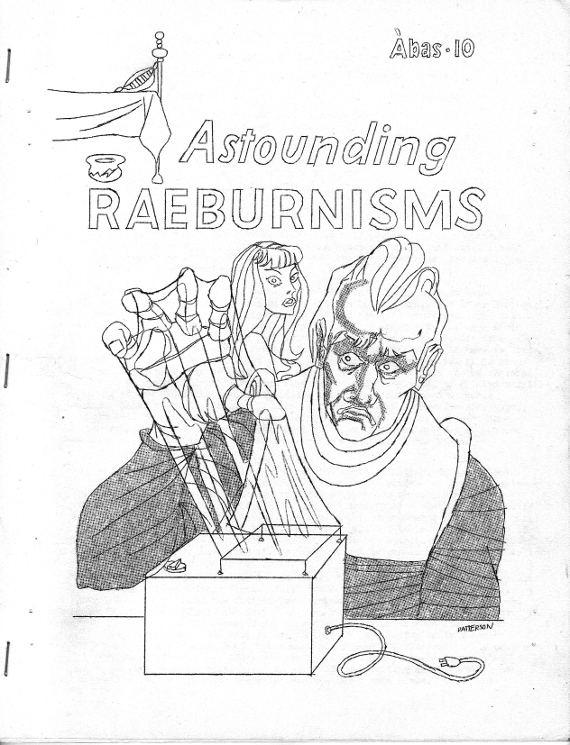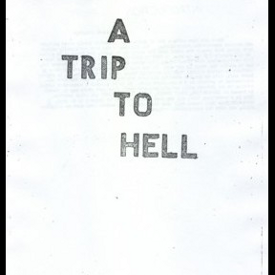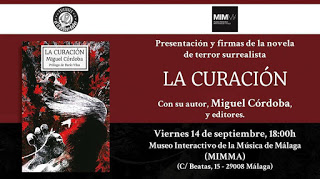Fanzine reviewed: À BAS (#10).

À Bas (#10) – November 1957
Faned: Boyd Raeburn. Canadian Genzine.
Again, more evidence that many current fannish debates are older than the fen debating them (rendering the ongoing discussion rather fruitless and irrelevant I should think).
Case in point, Raeburn takes Marion Zimmer Bradley to task for loudly proclaiming in her column “The World of Null-F” published in “Yandro” that “…the reader of fanzines is usually a science fiction fan…” but that “Fans—at least the most active and ardent fans—furiously denounce science fiction.”
Raeburn counters with “Mrs. Bradley reiterates another familiar old plaint that fanzines don’t devote themselves to science fiction… science fiction fans have all sorts of interests, and it is the discussion of these varying interests in fandom about which she complains…” Telling Bradley to get real as it were.
The highlight of this issue is “The Moth and the Steamroller,” Raeburn’s account of his trip to the 1957 Worldcon in London, England (which Murray Moore reprinted in an issue of “Aztec Blue” a few years back). I envy his flights. First, he catches a TransCanada Airline Viscount from Toronto to Montreal. I remember the Viscount! A four engine turboprop which flew low and slow, it had the largest windows of any airliner ever built. I remember, as a small kid, plastering myself against the window so that all I could see was the world below, as if I were flying sans airplane. Then he grabs a Connie (Super Constellation) with its distinctive triple tail to cross the Atlantic. Wow! Takes 10.5 hours to cross.
On landing in London Raeburn’s immediate impression?
“Everything frightfully English, with people speaking with English accents, masses of English cars, buses looking like overgrown Dinky Toys, and English weather (light rain)… and small English boys with English small boy faces and English small boy haircuts and English small boy suits all exclaiming “Daddeh, I say, Daddeh!”
He was but briefly in merry old England, for he caught a flight to Paris.
“I expected things to look French, but not that French. One felt that it had been expressly provided for the benefit of arriving tourists. Wide cobblestone sidewalks, masses of sidewalk cafes; children carrying long, long loaves of bread, gendarmes wearing capes and riding bicycles, all so like a French movie that I expected Fernandel to appear at any moment.”
On to Switzerland, and then to Frankfurt, Germany, where he stayed with the Benford twins Greg and Jim and their parents (their Dad was in the U.S. military and was stationed in Frankfurt). Greg Benford now a rather well-known SF writer these days.
“The Benford twins are a very pleasant pair… [the conversation] emphasis was on faaandom. Being so isolated from the fannish scene, they took full advantage of the opportunity for first-hand information.”
Then back to London to take in the Worldcon.
“Next day the convention proper started, and most angles of this have already been covered in numerous convention reports, including how Sam Moskowitz resisted the Belles of Bayswater Road who sought to deprive him of his Sense of Wonder, so I won’t go into it here.”
Raeburn than makes the most extraordinary comment that
“The convention as a whole (in my opinion an immense success) was unlike the U.S. conventions in that it was faaanish.”
Great Galloping Ghu! Over sixty years ago people had already decided U.S. cons had gone too pro? Blows my mind. No wonder faaandom has lost its appeal. Strictly Granddad stuff. But to carry on with his description:
“It would be most unusual to find as part of the program at a present day U.S. convention program such items as the running gun battle” [water pistols I presume] “between the agents of the Goon and anti-Goon over the convention gavel, the Ceremony of St. Fantony, or the tape plays such as ‘March of Slime’ and ‘Last & First Fen,’ (not that I yearn for more of the 140 proof Polish White Spirit I consumed in the St. Fantony ceremony. I think that would be too much even for Tucker).”
Raeburn travels to Manchester to meet a number of fans, then flies to Belfast so he can stay a while with Walt and Madeleine Willis.
“Having actually arrived at the historic Oblique House, I was so bemused that I casually strolled into that famous attic without pausing to think appropriate solemn thoughts as I crossed the threshold. John Berry arrived muttering ‘I feel vicious’ and a demonstration game of Ghoodminton was staged… John playing against Walt and Madeleine. While certain portions of Berry ‘factual articles’ may be open to doubt, I now have no reason to disbelieve his descriptions of Ghoodminton games. As played by the Belfast fans, it’s a natural for television.”
“Next day Walt took me for a drive in the countryside, and Ireland IS green. I don’t know how they get the grass that shade. Far in the distance, standing in solitary grandeur on top of a hill, was a tower which looked straight out of a fairy tale, the Tower of the Enchanted Duplicator.”
Aha! The tower in the famous epic was based on an actual building! How cool is that? Here is its brief description in the actual tale:
“Bathed in the mysterious, golden light of early dawn lay the fair land of Trufandom. Only its hills and spires were picked out by the questing rays of the sun, for the country was a sunken plateau ringed on all sides by mountains, so that it formed a secluded world of its own. A more wonderful one Jophan could not have imagined. Beautiful as it was, however, his eye was caught and held by the most wonderful thing of all. It was a tall, white tower which rose out of the rolling parkland, and soared into the sky. On the summit something glittered like a tiny sun.”
“This, he knew, must be the Tower of Trufandom – and on its top The Enchanted Duplicator!”
In conclusion, Raeburn writes
“I am still unable to decide whether I like England. Continued travel and meeting people combined with the ever-present cold produced a mental numbness, so that while on the surface I reacted normally, I was incapable of any deep feeling. England seemed like a gigantic movie set, and it is still hard to realise people actually live there their entire lives.”
But then he lists the dozens of fans he met and realises he had, in fact, immensely enjoyed himself. The trip definitely worthwhile.
In his article Derelicti Derogation #8 Raeburn once again welds quotes from various fen into a conversation of sorts, this time into a fannish discussion which once again reveals how far back certain ongoing fannish “problems” go:
Kirs: “The important thing is, is Coulsan a fan?”
Raeburn: Well, he puts out a fanzine and reads fanzines and makes comments and all that…”
Don Ford: “Aw, you’re just like those British fanzine publishers to whom the collectors, convention-goers, local club members, etc. are not really ‘true’ fans.”
Lyons: You overlook the fact that in Britain most of the convention-goers and club members are true fans.”
Moomaw: “Yeah, they don’t have the mass of fringefans we have here.”
Willis: “Admittedly there are some very worthy people who can rightly claim to be fans in the usual sense of the word, by virtue of participation in the affairs of a local group or by private correspondence, but as far as fandom is concerned they might as well not exist, except for three days a year when they may appear at conventions. The fact that they have no interest in fanzines means that they have neither interest in nor knowledge of fandom outside their local group.”
Elinor Busby: “Fringefans don’t know they’re fringefans. They think they’re just as fannish as anybody. Only actifans can tell the difference.”
Willis: “Apparently in America there is this ghost fandom which walks only at conventions. People like Kyle, Moskowitz, Madle, Evans and so on, who are never heard from for 362 days in the year and who if they do take part in national fandom must do so under assumed names… come convention time they spring to life and are seen right in the thick of it, speechmaking and organizing and intriguing and politicking just as if they were the very core of fandom, carrying on just as they did in ‘The Immortal Storm’ and ignorant of everything that has happened since.”
Walt, what are you saying? That first fandom, the founders of fandom, are an embarrassment to fandom? They’ve earned their stripes but have no right to participate as if they belong? Say it ain’t so Walt! This sounds unspeakably elitist. And grossly unfair. Doesn’t sound like you at all.
I reject the idea that first fandom became fringefans. If people like David Kyle and Sam Moskowitz don’t belong under the faaanish umbrella, then no one does. Walt Willis is one of my fannish ghods. It disturbs me to come across feet of clay. Sigh. Nobody is perfect, I guess. Still, makes me sad.
A little later, the topic having changed, Trina (Robinson?) makes one of the most famous fannish comments of all time: “That’s the awful effect of Freud on the Middle classes. They think they’ve a moral duty to say whatever dirty thing comes into their minds.”

In “Boy Meets Ghoul” Robert Bloch writes about something which has obviously been bugging him for a long time, namely the tendency of literary critics to ignore many an author while they’re still alive, only to suddenly laud them once they’re dead. He feels that SF fans are far more honest than critics, as witness the following:
“Science Fiction fans are often accused of intellectual immaturity and an addiction to crazes. But in my opinion, they are honest devotees. They erect their own idols, and bow down to them reverently in eternal fealty. In this they seem far superior to the blind followers of the Ghoul-Priests of the Higher Criticism who prostrate themselves before a dozen gods in turn at a word of command. Those who adore Heinlein continue to adore him, on the basis of an actual appreciation of his work. They don’t wait for some distant voice to command their worship at will, just because some public relations man in a publishing house starts needling his obedient critic who – while he may try to retain objectivity in dealing with the work of the living – has no compunctions about gilding the lilies on a dead man’s grave.”
Seems a tad bitter. In my opinion the only people who pay attention to “Higher Criticism” are academic groupies. Mostly people (or at least people like me) just want to find out if a given work is fun to read, if it is a “ripping good yarn.” (See my OBIR Magazine – listed below – to find out how I behave as a critic.)
Then there’s the text of the play “My Fair Femmefan” written by Carl Brandon, who was a hoax concocted by Terry Carr and other California fans. Till exposed, Carl gained quite the reputation for innovative fannish writing, as witness these lyrics based on those of “My Fair Lady.”
“The Ghreat Ghod Ghu gave fans the blasted mimeo
Because hektographic repro really stank.
The Ghreat Ghod Ghu gave fans the blasted mimeo, BUT
With a little bit of luck
With a little bit of luck
Someone else will turn the goddam crank.”
“Ah-ha-ha, Enry Iggens, just you wait!
Oooh, Enry Iggens, just you wait till you’re in Raeburn’s Derogation.
Hah! Enry Iggens – and you’re stomping ‘round the room in irritation.
Though you’re full of indignation,
I’ll be laughing with elation –
Ah-ha-ha Enry Iggens; Oh-ho-ho Enry Iggens,
Just you wait!”
“Fout, fout, fout, fout!
I’ve grown accustomed to her fizz!”
Dick Ellington contributes a two page article describing 1954 Christmas Eve in New York. I have no doubt it was meant to be hilarious, but it reads quite painfully today. Basically it is an account of a prolonged drunken binge by a bunch of local fans:
“We load up and move off. Gibson and Saha carry Mason, Curran and I carry Jukovsky, Trina is rear guard, carrying assorted fanzines, thermos bottle and Mr. Harper who is getting quite low. We drop Jukovsky again several times but crusted puke and dirt on face prevent serious facial injury.”
This cheery tale ends with: “It is six A.M. and it is Xmas morning. I look at Danny. Through drunken giggles he blurts out a strangled ‘Merry Xmas.’ I riposte neatly with ‘God damn the Merry Gentlemen.’”
Been there. Done that. Happy to be older and wiser.
The letter column is stuffed with all kinds of goodies, including this vignette from Jan Saddler Penney of Jackson, Mississippi: “Ego Clarke [nickname of Arthur C. Clarke] was at Tulane a while ago. He spake the holy word on space travel, displayed Bonestalls [artwork by same] and stood around afterward, beaming at all the ruddy provincials. Dave, mine spouse who is fannish and prefers Sturgeon, approached him respectfully.”
“Ah, sir…’ he began, ‘I wonder if you’d explain your remark about the eggplant?’”
“Huh?’ he said.”
“You know: the one in HYPHEN. ‘I had one eggplant but.’”
“Oh. Well, uh, haven’t kept up with Willis lately, I…’ and he fled. Terribly excitable people, those British.”
And Greg Benford recounts the time he couldn’t resist asking Forrest J Ackerman about a famous Los Angeles scandal. The result was a bit disappointing:
“During a dull session of the program I went over to Ackerman and inquired with bright, bright smile: ‘Excuse me, sir, could you explain what happened in the old Burbee-Laney days of the LASFS?’ Frown, pursing of lips. ‘Weeell, at the time Burbee and several others were using the club for a hangout… playing bop records and drinking and that sort of thing, you know.’ Knowing smile, slight nod of head. ‘And when I complained (on the part of the rest of the members who were away, you know) they brought up this completely unfounded statement about the club being a ‘nest of fairyism’ and well, I…’ And like that.”
Raeburn was horrified, though not at the ancient accusations of homosexuality regarding certain members, but rather “One boggles at the thought of traditionalist Laney and ragtime fan Burbee playing bop records.” Raeburn was a jazz fan himself.
All the above is just some of the interesting stuff packed into 45 pages which constitutes (nowadays) a veritable time-travel glimpse into the fannish past.
BY THE WAY:
You can find a fantastic collection of zines at: Efanzines
You can find yet more zines at: Fanac Fan History Project
You can find a quite good selection of Canadian zines at: Canadian SF Fanzine Archive
And check out my brand new website devoted to my OBIR Magazine, which is entirely devoted to reviews of Canadian Speculative Fiction. Found at OBIR Magazine










